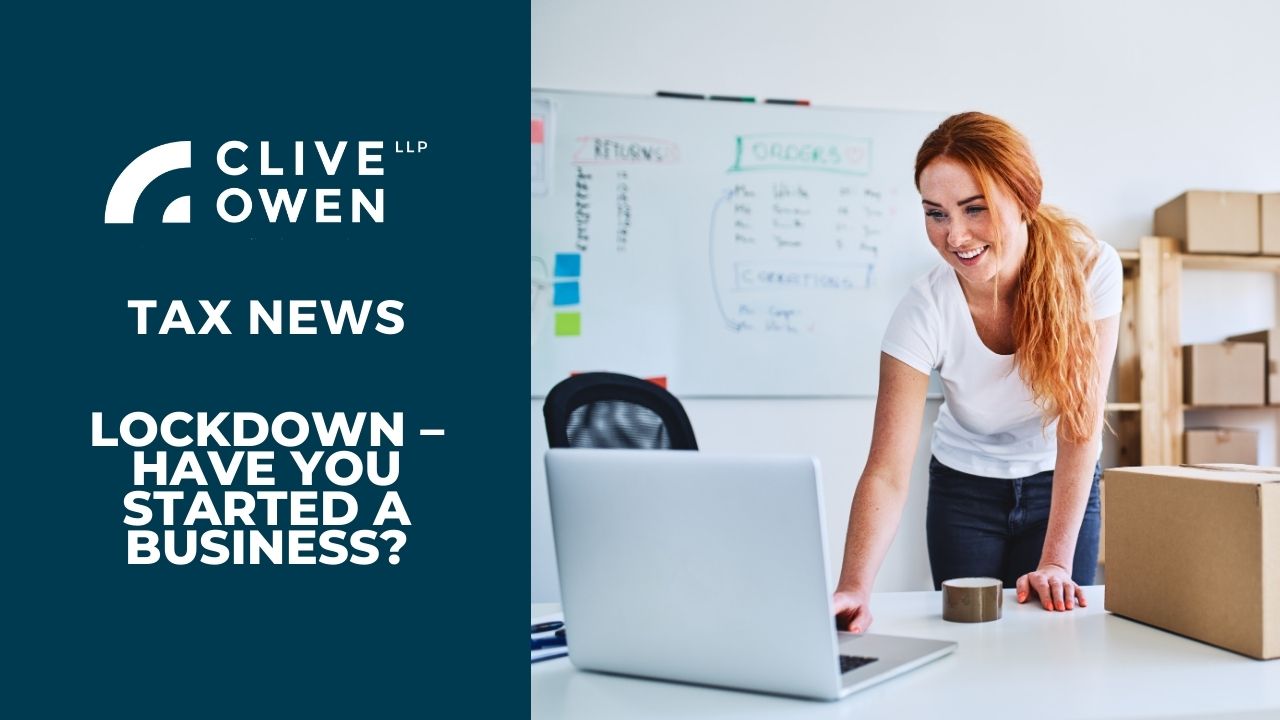
Date posted: 8th Mar 2021
Many businesses with trading premises are temporarily closed under the current COVID-19 lockdown.
However, due to the lockdown, there are many new home-based enterprises that have started to offer services to their local communities from delivery drivers to the provision of home made curries and boxed sweets. It is encouraging to see such start-up businesses and the entrepreneurialism of the UK population. There are many successful businesses that started out of a home or garage including Amazon and Apple.
However, before you worry about running an international corporation, you need to consider the associated tax implications of starting to trade and what you need to tell HMRC.
Trade identifiers
There is a difference, in tax treatment, between occasionally selling an unwanted item online and running a business. However, where is the line drawn?
Over many years, the courts have considered the “badges of trade” when answering this question. These “badges” are indicators that attempt to identify that a taxable trade exists.
Questions posed by the badges of trade include:
- Does the business have a profit-seeking motive?
- How many transactions are there and are these repetitive?
- What is the asset being sold?
- Have there been any repairs or improvements to the asset in readiness for a sale?
- How was the asset sold?
- How was the asset financed and/or acquired?
- How long is the interval of time between the sale and purchase?
Whilst no single factor provides conclusive proof of a trade, it is necessary to consider all of the badges of trade and form an overall conclusion.
Trading allowance
However, even if there is a trade, it not always necessary to disclose the income to HMRC.
The trading income allowance removes the requirement to tell HMRC about income where the gross annual income from one or more trades is £1,000 or less for the tax year. Once the £1,000 allowance has been exceeded, then you must report the income to HMRC.
What to tell HMRC
If your gross income from all trades that you carry out is more than £1,000, you must tell HMRC about your income and expenses on your self-assessment tax return (registering for self-assessment and self-employment too, if you are not already registered).
In working out your profit you can either deduct expenses wholly and exclusively incurred in connection with the trade or, if more beneficial, the £1,000 trading allowance. Deducting the allowance will generally be more beneficial if expenses are less than £1,000. However, as the deduction of the allowance cannot create a loss, if after deducting actual expenses there is a loss, it is better to deduct the actual expenses rather than the allowance so you can benefit from the associated loss relief.
In addition to tax, there may also be national insurance implications of the trade and you will need to remember to save for both tax and national insurance liabilities.
How we can help?
We are well versed in the taxation of start ups and we can help with the choice of trading entity such as sole trader, partnership, LLP or limited company. These entities have different taxation and commercial aspects and it is important that all are considered, particularly for any growing business. There may be tax planning opportunities to undertake whilst the business is relatively young, to benefit you in the future. You can contact the tax team here.


